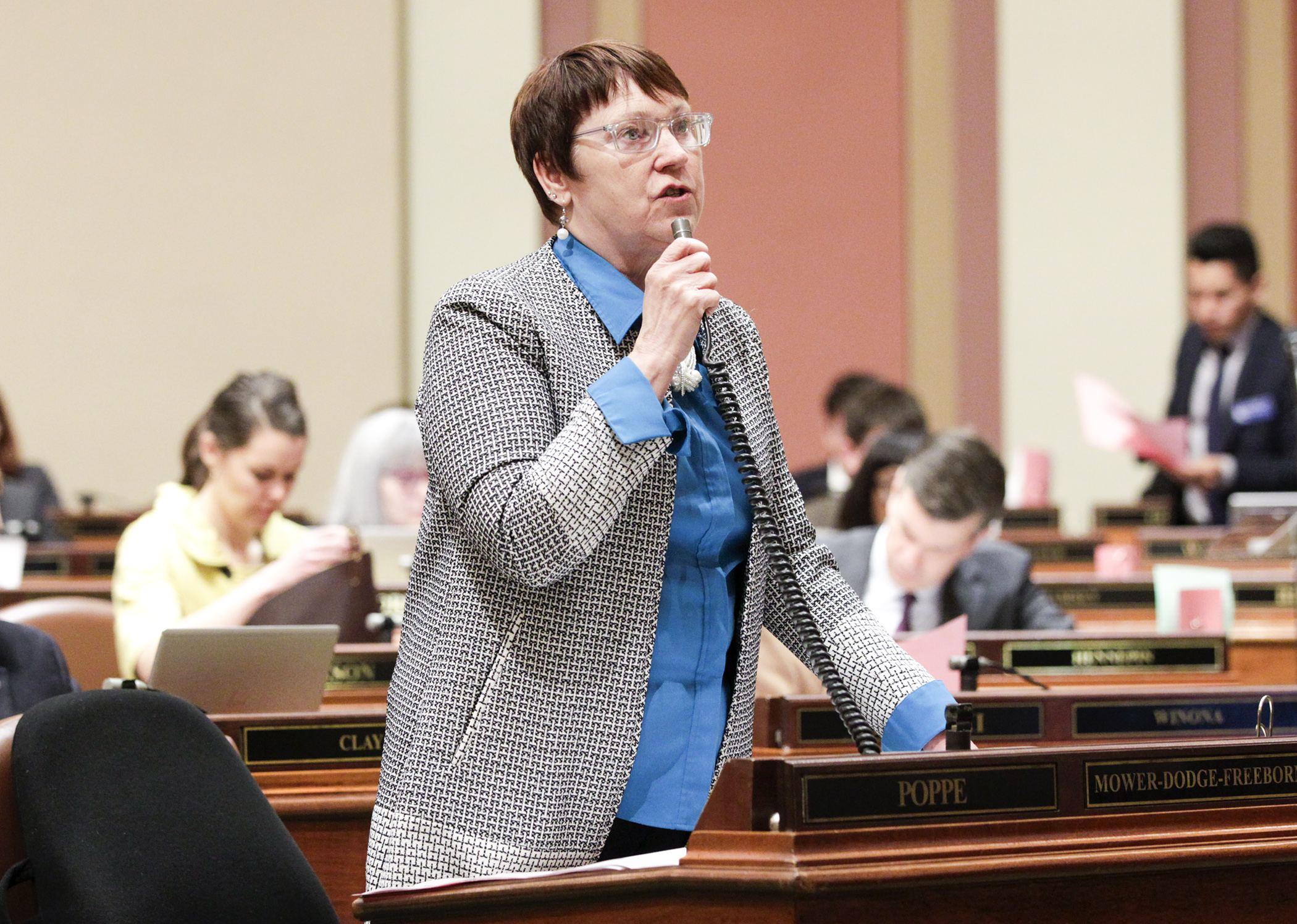Bulk of controversy plowed under as House OKs ag policy bill

The policy efforts of the House Agriculture and Food Finance and Policy Division took another step forward with Wednesday’s passage of a plethora of policy changes.
Approved as amended, on a 81-49 vote, HF1733 sponsored by Rep. Jeanne Poppe (DFL-Austin) makes a number of policy changes, some carried over from the previous biennium when then-Gov. Mark Dayton vetoed the omnibus budget bill. The bill now heads to the Senate where Sen. Bill Weber (R-Luverne) is the sponsor.
A pair of provisions would redefine industrial hemp and allow the Department of Agriculture to expedite rulemaking around industrial hemp products.
“We need these expedited rules as soon as possible,” said Rep. Brian Johnson (R-Cambridge).
Noting issues discussed in the House Public Safety and Criminal Justice Reform Finance and Policy Division relating to industrial hemp, Johnson said there are currently no rules to deal with CBD extracts that contain high levels of THC. While CBD has been shown to have benefits, THC had recently resulted in some students at his local school being sent to hospitals after vaping.
But the most controversial sections of the bill were removed through an amendment from Poppe.
Provisions around depopulating cervidae (deer, elk, and moose) farms where chronic wasting disease had been found, and requiring double fencing of cervid farms, were passed in HF2200 – the omnibus agriculture, food and housing finance bill – making their inclusion in the policy bill moot, Poppe said.
Likewise, provisions relating to the Disaster Recovery Loan Program are unnecessary because Gov. Tim Walz signed a law in March to expand the program.
The bill does include a number of popular provisions that drew bipartisan support, such as proposed modification of the methane digester loan program that would allow entities that have paid off a prior digester construction loan to apply for a second loan.
Other provisions include modifying the definition of swine basins and expanding handling and sales rules as they apply to milk and eggs.
Contention arose over an unsuccessfully offered amendment by Rep. Rod Hamilton (R-Mountain Lake) to strike the first provision in the bill.
It would grant the Department of Agriculture the authority to delegate it’s duties on use, application, and disposal of pesticides to “cities of the first class,” defined as cities with more than 100,000 inhabitants. Minneapolis, St. Paul, Rochester and Duluth are the only such cities in the state.
Calling it permissive language, Poppe said it allowed but did not require or mandate delegation.
Hamilton called the provision, “a terrible precedent to set,” and questioned the agency’s ability to delegate and enforce pesticide laws.
Debate of the issue devolved into complaints over the process by which bills have been heard and considered throughout the session. Rep. Jon Koznick (R-Lakeville) said the bill with that provision should have been heard in the House Subcommittee on Local Government and the House Government Operations Committee, yet was not.
Those failures illustrate “bad procedure and missed opportunity” seen throughout session, according to Koznick. “It should have been vetted better.”
Related Articles
Search Session Daily
Advanced Search OptionsPriority Dailies
House closes 2024 session in chaotic fashion, trading bonding for budget boosts
By Rob Hubbard It was a session of modest ambitions.
After 2023 produced a record $72 billion in biennial funding, Minnesota’s legislative leaders were dampening expectations for anything ...
It was a session of modest ambitions.
After 2023 produced a record $72 billion in biennial funding, Minnesota’s legislative leaders were dampening expectations for anything ...
Ways and Means Committee OKs proposed $512 million supplemental budget on party-line vote
By Mike Cook Meeting more needs or fiscal irresponsibility is one way to sum up the differences among the two parties on a supplemental spending package a year after a $72 billion state budg...
Meeting more needs or fiscal irresponsibility is one way to sum up the differences among the two parties on a supplemental spending package a year after a $72 billion state budg...